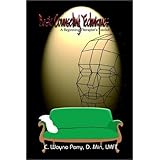
Average Reviews:

(More customer reviews)I was required to use this book for a counseling course and had planned to sell it ( as I do with most text books) when the couse was over. However, I found the book to be well organized and easy to read. The best part about the book are the living into the lesson exercises at the end of each chapter. If the reader will take the time to do these exercises he/she will get even more out of the book. I will keep this book as a reference guide of practical suggestions while doing therapy.
Click Here to see more reviews about: Basic Counseling Techniques: A Beginning Therapist's Toolkit
?Yes, but what do I do with that client?' That is a question Dr. Wayne Perry often hears as he works with beginning counselors or therapists. It is the question Basic Counseling Techniques seeks to answer. Born out of Dr. Perry?s more than twenty-years? experience training marriage and family therapists and pastoral counselors, this book skips the theory and goes right for the practical application. Students in counseling or therapy training programs will find Basic Counseling Techniques an essential part of their studies. This textbook gives the basic steps to actually applying nine different sets of clinical tools, and guidelines for selecting the appropriate tool for the appropriate clinical situation. That makes this textbook unique in the field. Another unique feature is this textbook?s practical suggestions for setting up the therapy room, using audio-visual recording equipment, and making covert interactions overt. Each of the fifteen chapters concludes with a 'Living Into the Lesson' section to give the reader experiential exercises to apply that chapter?s skills.Training program directors will find this book invaluable for students who will soon begin their practicum. Beginning therapists, both interns and recent graduates, will find it irreplaceable in building their own professional 'toolkit.'
Click here for more information about Basic Counseling Techniques: A Beginning Therapist's Toolkit

0 comments:
Post a Comment